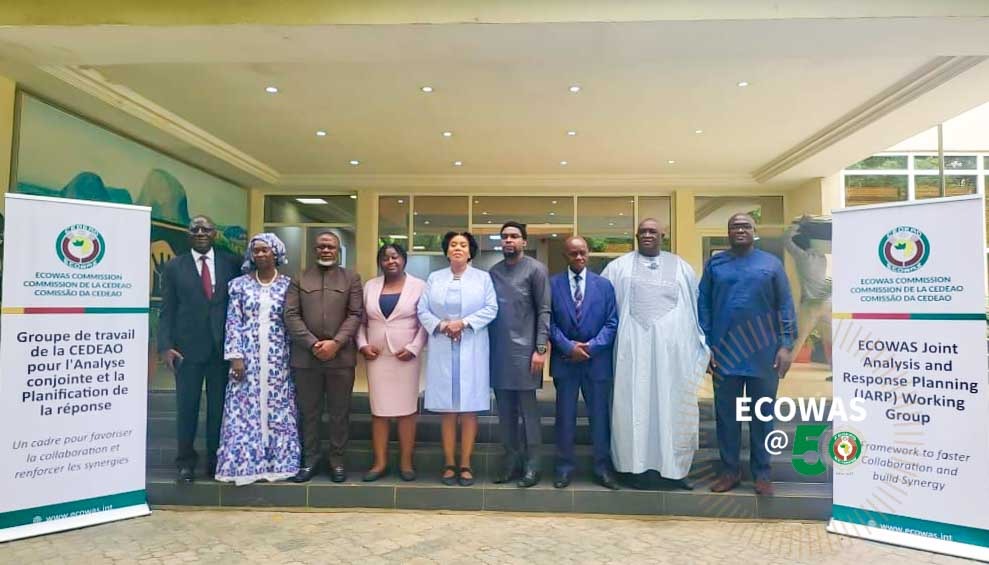Perpetuating the JARP-WG to deal effectively with the many challenges to ECOWAS’ security and stability
30 Apr, 2025Terrorism, violent extremism, conflict, transnational organised crime, climate change, epidemics, poverty, inequality and unconstitutional changes of government are just some of the enormous challenges threatening human security and stability in the Economic Community of West African States (ECOWAS) region.
These are major threats to peace and stability in the West African region, said the Vice-President of the ECOWAS Commission, Ms Damtien Larbli Tchintchibidja, on 28 April 2025 in Zuma Rock, Nigeria, at the opening of the 2025 technical session of the Joint Analysis and Response Planning Working Group (JARP-WG).
For Ms Tchintchibidja, represented by the Commission’s Acting Director of Early Warning, Dr Onyinye Onwuka, meeting these human security challenges has never been more urgent, hence the crucial importance of setting up the Working Group.
“The JARP-WG aims to strengthen our capacity for joint analysis and response planning to threats to human security, while establishing standardized procedures and promoting collaboration between Commission departments and between ECOWAS Member States. This initiative represents a significant step forward in our early warning systems and response efforts”, said Dr Onyinye Onwuka.
She stressed the need to consolidate the operationalisation of this working group and recalled that its success depends largely on the participants in this session.
The three-day session brings together the directors of the National Early Warning and Response Centres of some ECOWAS member States, representatives of various departments of the ECOWAS Commission, and the West Africa Network for Peacebuilding (WANEP).
Its aim is to gather their analytical contributions and recommendations to be taken into account in the report on the human security situation in ECOWAS 2024 and prospects for 2025. It will also examine the priority areas identified in the report, and set clear objectives for the next steps in terms of response actions.
Dr Onyinye Onwuka also stressed the need for participants to examine the risks, threats and root causes of human insecurity in the ECOWAS region, and to reflect on the best way of anticipating and resolving these problems through a more holistic approach centred on human beings and their well-being.
She expressed her conviction that, at the end of this meeting, the JARP-WG will provide a more in-depth analysis that takes into account new perspectives for dealing effectively with threats to human security.
The JARP-WG was created in May 2022 and officially launched in July 2022 by the Vice-President of the ECOWAS Commission, Ms Damtien Larbli Tchintchibidja.
It aims to strengthen synergies and improve the region’s capacity to prevent, mitigate and respond to human security challenges.
Its main objective is to provide a forum for ECOWAS to collaborate with stakeholders in its member States on a structured and regular basis, facilitating joint analysis, planning and implementation of responses to human insecurity.
The JARP Working Group is structured around the five human security thematic areas of ECOWAS early warning: security, crime, health, environment and governance.
After the opening ceremony, participants were given two presentations, one on ‘Introduction to ECOWARN 2.0 and its role in detecting human security challenges’, and the other on ‘Introduction to JARP tools to strengthen collaboration and synergies in early warning and response’. The presentations were made respectively by Marcel Bossou and Nanténé Coulibaly Seck, both of whom work in the Early Warning Department of the ECOWAS Commission.

















